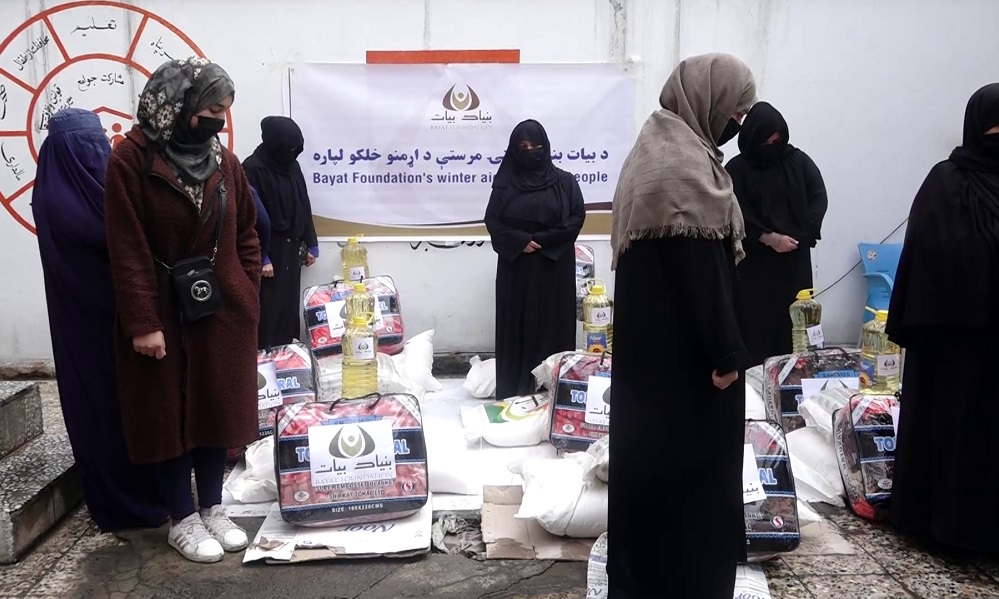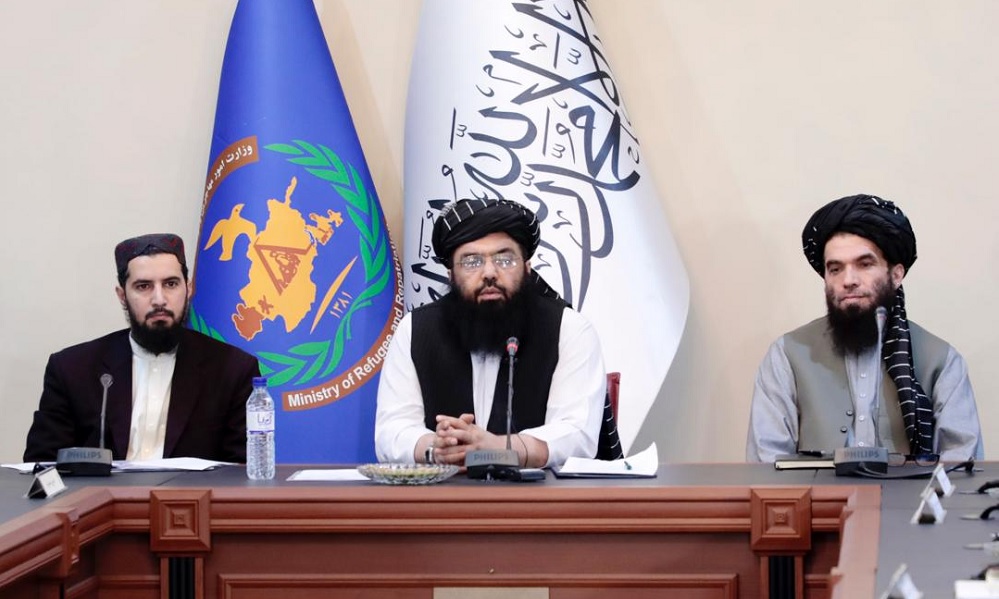Latest News
Recent attack on Afghanistan was a justified response to Pakistan’s foes: Sharif

Pakistan’s Prime Minister, Shehbaz Sharif, recently stated that the military strike on the Barmal district of Paktika province in Afghanistan was an appropriate response to the armed opposition confronting Islamabad.
In a meeting in Islamabad, Sharif warned that Pakistan has, and will continue to deliver a strong and decisive response to cross-border attacks. He emphasized that both internal and external forces are actively working against Pakistan’s stability.
“Today, we are addressing the attack on Pakistan that occurred in recent days, and we responded appropriately,” Sharif said. “There are still operatives and fighters in Pakistan, particularly in Khyber Pakhtunkhwa and Balochistan, who are plotting against us. We are aware that some who are sitting abroad, posing as friends, are in fact working against Pakistan, which is a serious threat.”
However, Pakistani media have reported that the Prime Minister’s remarks refer to the influence of the Tehrik-i-Taliban Pakistan (TTP), which operates from Afghan soil and has faced resistance from Pakistani forces. While Pakistani authorities have described the operation as a defensive measure, local sources and Afghanistan’s Ministry of National Defense said that the Pakistani airstrike on Barmal district led to civilian casualties, including women and children.
In response to Sharif’s comments, Sher Mohammad Abbas Stanikzai, the Deputy Foreign Minister for Political Affairs, stated that Pakistan’s issues are internal and that if Islamabad pursues a path of hostility with Afghanistan, it will ultimately face failure.
Stanikzai also issued a warning, asserting: “If Afghanistan were to send the ‘five sons of Mahmud, Abdali, or Babur’ across the border, no one—not even in the Indian Ocean—could stop them.” He further emphasized that Afghan forces have successfully safeguarded the nation’s borders, adding, “If the enemy has looked at it with an evil eye, they have plucked out their eye.”
Experts, however, believe there are contradictions in the views and positions of various Pakistani institutions and officials regarding Afghanistan. While Sharif speaks of military confrontation, Pakistan’s Ministry of Foreign Affairs has consistently advocated for diplomacy and expressed a desire for peaceful, friendly relations with Afghanistan.
Latest News
Turkish intelligence captures a Daesh member near the Durand Line

Turkish intelligence agents have captured a senior member of Daesh near the Durand Line, reportedly preventing planned suicide attacks in Turkey and other countries, according to Turkey’s state-run Anadolu Agency on Monday.
The suspect, identified as Mehmet Goren, is a Turkish citizen. He was apprehended during a covert operation and transferred to Turkey. Details on the timing of the operation or the involvement of Afghan and Pakistani authorities were not disclosed.
According to the report, Goren had risen through the ranks of Daesh and was allegedly tasked with carrying out suicide bombings in Turkey, Pakistan, Afghanistan, and Europe.
Daesh has a history of deadly attacks in Turkey, including the January 1, 2017 shooting at an Istanbul nightclub that killed 39 people.
Anadolu Agency reported that Goren’s arrest also provided intelligence on the group’s recruitment strategies and planned activities.
Latest News
Dozens of needy families in Kabul receive winter aid from Bayat Foundation

Dozens of needy families in Kabul’s fifth district have received essential winter assistance from the Bayat Foundation, as part of ongoing efforts to ease hardship during the cold season and worsening economic conditions.
According to foundation officials, the aid package includes staple food items such as flour, rice, and cooking oil, along with warm blankets to help families cope with freezing temperatures. Haji Mohammad Ismail, Deputy Head of Bayat Foundation, said the distribution began in Kabul and will soon be expanded to other provinces.
“Our assistance includes flour, rice, cooking oil, and blankets,” Ismail said. “Today, we started distributing these items in Kabul’s fifth district, and God willing, the aid will reach other provinces in the near future.”
Afghanistan continues to face widespread poverty, unemployment, and food insecurity, with many families struggling to meet basic needs, particularly during winter when access to work and heating becomes more difficult.Humanitarian organizations and charitable foundations have stepped up relief efforts to support those most affected.
Beneficiaries welcomed the assistance, describing it as a lifeline. “May God bless you for helping the poor. We had nothing and no work,” said one recipient. Another added, “Thank you for your help. Our flour was almost finished.”
Bayat Foundation officials stressed that winter aid distributions will continue in Kabul and other provinces in the coming days, as part of their broader commitment to supporting needy families across the country.
Latest News
Nearly seven million Afghan refugees return home since Islamic Emirate’s takeover

Since the Islamic Emirate came to power, approximately 6.8 million Afghans have returned home, either voluntarily or forcibly, from neighboring countries and other nations, according to the Minister of Refugees and Repatriation.
Mawlawi Abdul Kabir, speaking at a meeting on finalizing a draft plan for a permanent migration solution in Afghanistan, added that 1.3 million Afghans have been internally displaced due to natural disasters during the same period.
With winter approaching, widespread poverty and severe cold are threatening thousands of lives. Meanwhile, the forced expulsion of Afghan migrants from neighboring countries, particularly Iran and Pakistan, continues.
The Islamic Emirate has repeatedly urged neighboring states to allow migrants to return voluntarily. According to UNHCR, over two million Afghans have returned from Iran and Pakistan since the start of 2025.
-

 Latest News3 days ago
Latest News3 days agoAfghan border forces prevent illegal entry of hundreds into Iran
-

 Latest News3 days ago
Latest News3 days agoPakistan summons Afghan diplomat over deadly attack in North Waziristan
-

 Latest News2 days ago
Latest News2 days agoAfghan health minister calls for medical cooperation between Kabul and New Delhi
-

 Latest News1 day ago
Latest News1 day agoAfghanistan signs 30-year deal for marble mining in Daikundi
-

 Latest News3 days ago
Latest News3 days agoJapan allocates nearly $20 million in humanitarian aid for Afghanistan
-

 Latest News2 days ago
Latest News2 days agoKarzai urges reopening of girls’ schools and universities for Afghanistan’s bright future
-

 Health5 days ago
Health5 days agoAfghanistan seeks India’s support in standardizing traditional medicine
-

 World5 days ago
World5 days agoUS readies new Russia sanctions if Putin rejects peace deal, Bloomberg News reports
























